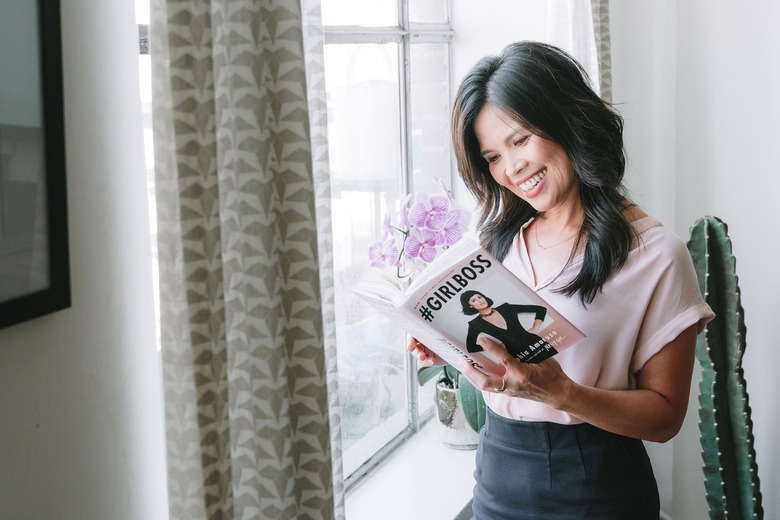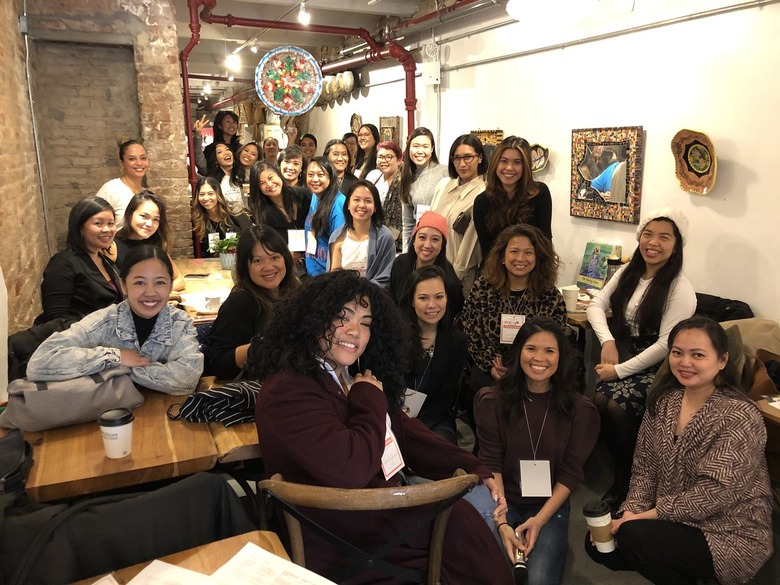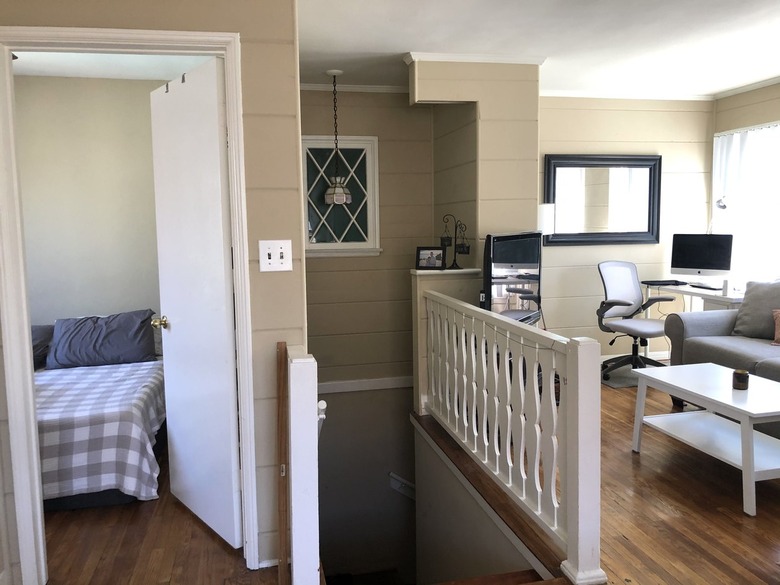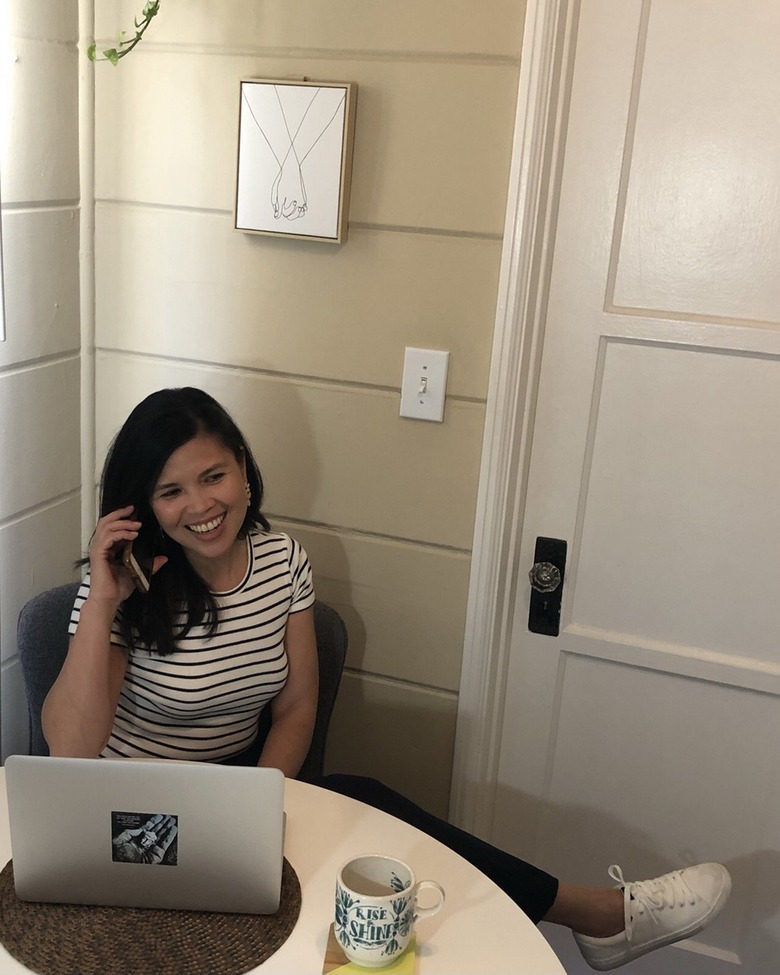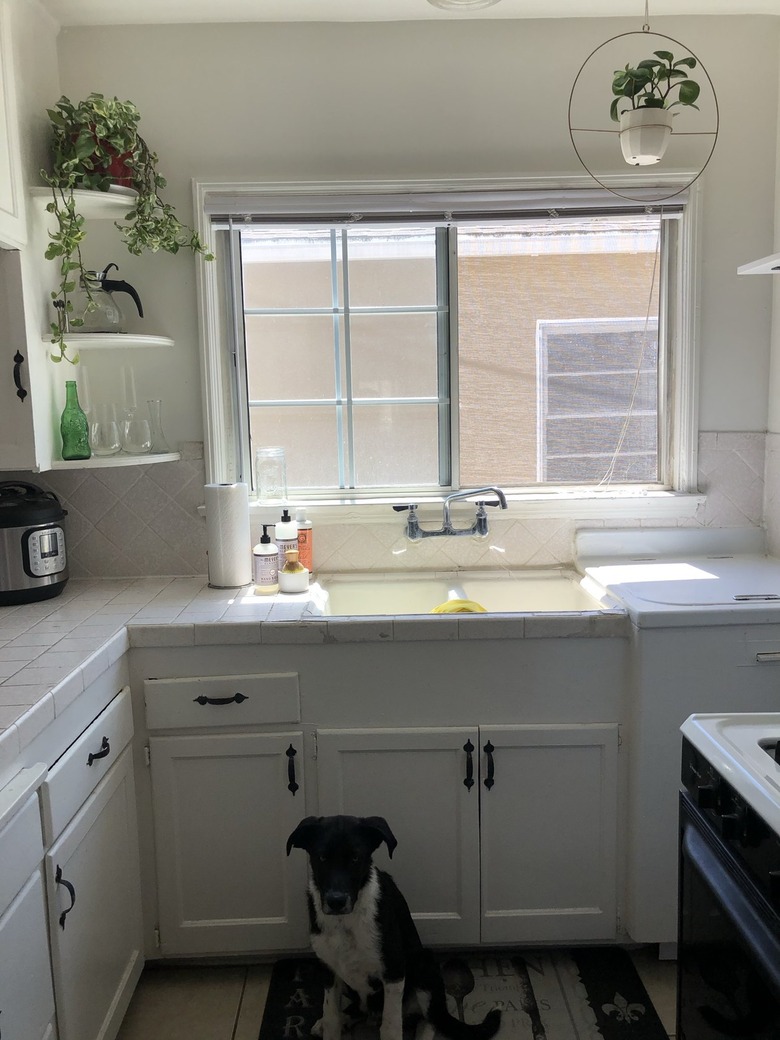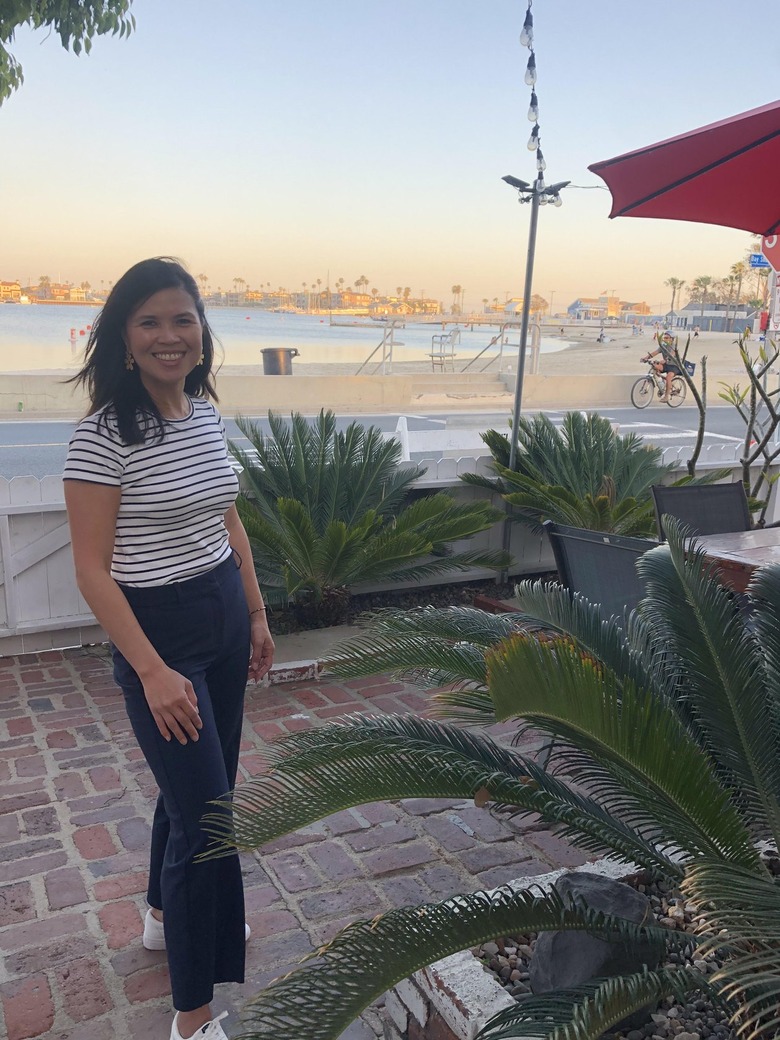Anna Marie Cruz On Empowering Filipina Entrepreneurs And Working From Home
Anna Marie Cruz is the founder of Entrepinayship, an organization serving Filipina entrepreneurs that currently has 500 international members. In addition to managing an online directory of Filipina-owned businesses, Entrepinayship produces the "Foundher" podcast featuring "Entrepinays," and hosts valuable workshops throughout the year. Cruz launched the initiative in 2015 with the vision "for every Filipina to realize her full potential," she told Hunker.
We chatted with the community leader about how Entrepinayship came to be, the biggest challenges female entrepreneurs have always faced, and what her home office looks like.
Hunker: What inspired you to launch Entrepinayship?
Anna Marie Cruz: I was a business counselor at the Asian Pacific Islander Small Business Program and Search to Involve Pilipino Americans (SIPA) around 2015. I'd also returned a couple of years prior to that from Vietnam working on a dream project with 19 women weavers who lived in the mountains, and the project in essence was to help them create a microbusiness because there was an increase in tourism in the region. So it was a way for them to really leverage that economic activity and ensure that they would benefit from it. This project showed me that one way to empower women is to make sure they have control of the purse.
Entrepinayship emerged from that work and after visiting the Philippines on my own. I really thought about the impact of entrepreneurship on women's lives particularly in these areas around the world. Entrepreneurship is an approach to economic empowerment and self-determination, and to creating more visibility and positive representation. I started Enterpinayship here in Los Angeles as a social impact project for FYLPRO (The Filipino Young Leaders Program) in 2015. It was to support not only the idea of entrepreneurship, but again, to leverage our huge international diaspora to address gender inequalities affecting Filipino women in particular.
Hunker: Is there an entrepreneur you particularly admire?
AMC: Josie Natori, founder and CEO of The Natori Company, is always going to be one of my big sheroes. She emigrated from the Philippines, became one of the youngest female finance executives, and then started a clothing brand that would become one of the biggest in her category. Another is Melanie Perkins, founder of Canva, whose innovation empowers so many entrepreneurs today to create their own graphic design. Yet very few of us in the Filipino community know these women share our heritage and it's important to bring visibility to them as role models of what we can accomplish in entrepreneurship and leadership.
Hunker: What do you feel is one of the greatest challenges facing female entrepreneurs?
AMC: Funding has always been an issue for women. I've worked as a lender. And one of my clients actually said that when she raised money from a VC, the first question she was asked was, "Are you planning to have children?" So there are biases. If you have an industry that's dominated by men, you know that type of thinking is part of a decision process.
Another issue is, I think, just attitudes that we might have around money. So the more we can talk about money, the more we can get comfortable around that subject. April, for example, is Financial Literacy Month. So we're doing a lot to raise awareness of what it means to be financially well, to be financially educated, and to think about how your values are related to your money decisions. We have to make the topic of money more approachable.
There's also a cultural aspect and when you talk about money in regards to women of color. It could be related to trauma, it could be related to the immigrant experience or even the trust in institutions. We were kept out of banking and, by the way, women until the '70s couldn't even get their own credit card or loan without a male as a co-signer.
Hunker: Can you share some funding options for female entrepreneurs?
AMC: One of the best solutions for fundraising for women-owned small businesses is crowdfunding and using or leveraging social capital. One organization I'd like to plug is IFundWomen. It's a lending or a crowdfunding platform in which a business owner can fundraise. It's similar to a Kickstarter or GoFundMe, but designed for a specific project or business and with a mission to get capital to women. Crowdfunding centers on the founder's story and the fundraising process is more about their networks instead of credit or traditional requirements for loans or investments.
Hunker: Entrepinayship has hosted events that also emphasize self-care. How do you view self-care?
AMC: It's absolutely important and necessary, because we saw during the pandemic that women, just by traditional gender roles, are typically left with more responsibilities in terms of caring for others. We're caring for kids when the schools shut down, and women often had to opt out of the workforce due to this. Self-care is the absolutely necessary thing that helps to enable women to do those other things and it can add up. It's up to you to [decide] what self-care is for yourself.
Hunker: Can you share what your home office is like?
AMC: I'm on Bay Shore in Long Beach, which is across the street from the beach. So part of my office is the beach. I've been working from home even from before the pandemic. My home office setup is pretty simple. It's just my laptop and my tiny desk. We have a pretty small space intentionally. I think part of the process that I went through is also just being more minimalist. So we have very few things and a very small space. The biggest addition we have made since the pandemic is a puppy.
I also have the dining table if I need a little bit of variety, and I spend my work breaks walking around with my dog, spending time in nature, going to the beach and feeling the breeze. I have a separate co-working space that I rent out just to have variety and to create boundaries between my work and home life.
Hunker: Does having a minimalist workspace and home keep you focused?
AMC: Honestly, I think it's more about not being attached to things. I was in the real estate industry right before the crash, and I spent a lot of my energy accumulating things during that time. Over the years I realized that things are not that important. I would rather focus on experiences, keeping my space simple, decluttered, and comfortable. I spend a lot of my time and energy traveling for business.
Hunker: What are some of the things you can't live without, including when you travel?
AMC: At home, I have the beach nearby and, on the road, it's candles. I've been taking them when I travel, and I didn't realize how much of a difference that makes in terms of the sensory experience like smell. I do a lot of Airbnbs, but if you were to stay in an older hotel or place, a candle can make such a big difference. Other things I love are Turkish towels. They can be used as a beach towel, or just a scarf, or even just an extra blanket if you're out and get cold, or as a little picnic blanket.
Hunker: Who are some Entrepinays you'd like to share with our readers?
AMC: Interior designer Jhoeiy Ramirez of Studio Jhoiey, jewelry designer Klarissa Castro of KMaeJewelry and, for wellness, yoga therapist Marissa Tolero.
